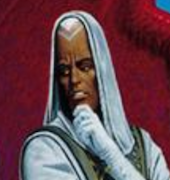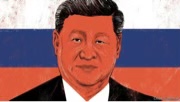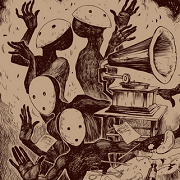|
Some Guy TT posted:Ronald Reagan's pronouncement, in his first inaugural address in 1981, that “government is not the solution to our problem, government is the problem” marked a signal moment in what has become the most successful political counterrevolution in modern American history. Having won a smashing electoral victory, Reagan acted as if he were the latter-day inverse of his long-ago political hero, Franklin Delano Roosevelt. Summoning the American people to “a rendezvous with destiny”—a line he had shamelessly filched from FDR in the 1964 speech on behalf of Barry Goldwater’s presidential campaign that established him as the Republican right wing’s future leader—and pretending that the stubborn stagflation of the 1970s was a crisis of the same magnitude as the Great Depression, Reagan channeled Roosevelt’s optimistic rhetoric to attack the instrument of Roosevelt’s great reforms: the federal government. He aimed, above all, to revive the laissez-faire economic and social policies that the Depression had discredited, that Roosevelt had supplanted, and that even Richard Nixon had repudiated when he declared himself a Keynesian. But Reagan’s antigovernment politics and policies went much further than rolling back the New Deal. jeffrey tubin'
|
|
|
|

|
| # ? May 24, 2024 23:40 |
|
Syq
|
|
|
|
https://www.nybooks.com/articles/2023/08/17/american-carnage-homegrown-jeffrey-toobin/ sean wilentz's review of jeffrey tubbin's new book
|
|
|
|
The ‘great wealth transfer’ isn’t $72 trillion but $129 trillion, BofA says—and the government gave most of it to baby boomersquote:Boomers have quite simply been the biggest beneficiary of a “massive wealth transfer,” wrote the BofA team led by Ohsung Kwon, echoing Dalio’s observation that trillions of wealth flowed from the public to the private sector thanks to government policy since the 1980s, when boomers were in their prime working years. BofA pointed to the ballooning government debt—from 31% of GDP to 120% during that period—and the 10-year Treasury yield shrinking from 12% to 4.6% today (it’s actually 4.9% as of press time). loving infuriating. The worst generation in American history.
|
|
|
Raskolnikov38 posted:lol sorry sean i dont care how good the book is, im not reading anything by the guy that beat off on live CNN He did what?
|
|
|
|
|
skooma512 posted:He did what? it was actually an inter-office zoom call but yeah
|
|
|
|
its history now and on topic to discuss in this thread at least it must be since it would be pretty weird for everyone to act like jeffrey toobin is a serious person whos learned from his mistakes if this was only like a few years ago
|
|
|
|
Chamale posted:This is one of the most common misconceptions of modern history. Banana candy tastes the way it does because of a chemical called isoamyl acetate - nicknamed banana oil because it smells somewhat like bananas - that was used to water-proof canvas airplane wings. It's made by combining a byproduct of alcohol distillation with vinegar, so it's cheap to produce. When airplanes started to be made of metal, there was a glut of banana oil, so companies used it to produce banana-flavoured candy. It was never intended to be a close match to the scent or flavour of bananas, it's just an extremely cheap chemical that happens to be close enough. It's also one of the weirdest lines in the overheated, nonstop English dub for Godzilla Raids Again (1959): "Aw, banana oil!"  https://archive.org/details/godzilla-raids-again-1989-video-treasures
|
|
|
|
https://twitter.com/aquaimperium8/status/1720184063233806754
|
|
|
|
I've been reading Midnight at the Pera Palace and it's super fun. Wish I'd picked it up earlier. quote:Since the bar run by the sometime madame Bertha Proctor was just down Graveyard Street from Dr. Chukri’s office—a bar that employed women whose names are recorded in history only as Frying Pan, Square rear end, Mother’s Ruin, Fornicating Fannie, and Skinny Liz—it was possible for men and women to acquire a disease and be relieved of it on the same city block.
|
|
|
|
quote:A detailed survey of first-run films in the summer of 1932 revealed the range of Istanbul’s viewing preferences: 96 percent of films showed characters using alcohol, 74 percent had a plot concerned with wealth or luxury, 70 percent centered on a love affair, 67 percent had actresses clad in suggestive clothing, 52 percent showed passionate romance, and 37 percent featured sexy dancing. Most of the movies—63 percent—were also determined to have an implausible plot. Deciding what is implausible, deciding what dancing is sexy dancing, deciding what plots concern wealth or luxury. gently caress yes. Dream job.
|
|
|
|
Teriyaki Hairpiece posted:I wanna be the guy doing the survey
|
|
|
|
Incredible things were happening in Singapore after the city fell to the Japanese.
|
|
|
|
That reminds me of an argument I had with a bunch of Americans 20 years ago who insisted there are both male and female cows and bulls are a different species.
|
|
|
|
Orange Devil posted:That reminds me of an argument I had with a bunch of Americans 20 years ago who insisted there are both male and female cows and bulls are a different species.
|
|
|
|
Uhuh, yeah, ok.
|
|
|
|
Tankbuster posted:Incredible things were happening in Singapore after the city fell to the Japanese. Wasn't there a chronic food shortage? E: just realized they may have had a religious reason not to slaughter the cattle.
|
|
|
|
In WW2, which regular soldiers were the worst off? Worst supplied, suffered the most, everything. I'm not counting people in punishment battalions or irregulars of any kind, no matter how organized. My answer is the collaborationist soldiers in China or the Romanians
|
|
|
|
Weka posted:Wasn't there a chronic food shortage? well I was reading a book about the INA. The Japanese then were eager to get the newly captured indian troops on their side and were willing to provide them with (male) cows.
|
|
|
|
Tankbuster posted:well I was reading a book about the INA. The Japanese then were eager to get the newly captured indian troops on their side and were willing to provide them with (male) cows. Just seemed weird to me to release 50 edible bulls when there was a food shortage until I realized those fellows may have had a good reason to.
|
|
|
|
I didn't know where to post this account of the Belsen trials. I don't know what to make of people like this: "(Belsen female SS guard) Irma Greese, a simple but fanatical Nazi who had joined the Party to spite her left-wing father, felt victimized by her work in the camps as well: The conditions in the concentration camps were bad for everyone, including the SS.The only time that I was allowed to go home for five days was after I had finished my training in Ravensbruck. I told my father about the concentration camp and he hit me and told me never to enter the house again." I mean, good for him, obviously. That was probably a dangerous thing to do in Nazi Germany, but seriously wtf.
|
|
|
|
Nazis are always the victims in their story, they are driven by resentment and think of themselves as righteously striking back against their oppressors.
|
|
|
|
|
One of the concentration camp guards in Jasenovac had a therapist, who was an inmate, because reality has a sick sense of humor sometimes. Said inmate survived the war, and (for obvious reasons) didn't hold his patient's privacy in high regards. The guard complained to the therapist that during a prisoner killing contest (recorded and confirmed as a thing to have existed by multiple people), he ran into an old man who lost his entire family, who was still lucid but couldn't be intimidated no matter how much the guard tortured and humiliated him. This made the guard very depressed, so he quit the contest after killing the man, and then kept complaining how he lost the sense of euphoria from the killings and wants the therapist to help him to get it back. Dude got traumatized from the torture he was inflicting, and wanted to get it out of the way so he could torture some more. The winner of the above contest successfully fled to USA and was never found, by the way.
|
|
|
|
Frosted Flake posted:I didn't know where to post this account of the Belsen trials. I don't know what to make of people like this: dads rock. Also loling at the german Dasha.
|
|
|
|
Tankbuster posted:dads rock.
|
|
|
|
Red Scare worthy thesis Becoming Evil: The Shaping of a Nazi Female Consciousness from Weimar through the Third ReichDon't stay in grad school too long posted:...while historians have extensively studied this period (the Holocaust), relatively few have examined the roles that women like Grese played, and still less has been written on how these women came to occupy those roles. This thesis aims to remedy this by taking a broad view of evolving attitudes on women’s public engagement from the Weimar Republic through the Third Reich to determine how a German female consciousness developed that led some of these women to become active participants in the Holocaust. Sailor National Socialism    Cross-examination of Helene Grese (sister) at the Belsen Trial: How long before 1943 was it since you had seen your sister? -- In spring, 1942, when she was working in the dairy. When she came home in 1943, did your father give her a thrashing? -- I did not see that, but he was quarrelling with ther because she was in the S.S. Did he forbid her to come to the house again? -- I do not know. She never came again. Was not that because she told you what she did at Ravensbrück? -- I do not know why. You would be 16 at that time; you never asked your sister what she was doing in the concentration camp, and she never told you? -- She told us she was supervising the prisoners working inside the compound, and she had to see that they were doing their work well and that they did not escape. We asked her: "What do the prisoners get for food, and why have they been sent to a concentration camp?" and she answered that she was not allowed to talk to the prisoners and did not know what sort of food they got. Why did your father lose his temper with her? -- Because he was very much against her being in the S.S. We all wanted to belong to the Bund Deutscher Mädchen, but he never allowed us to do so. I have not seen my father since April, 1945.
|
|
|
|
Gotta be honest, having your children turn out to be nazis in spite of your vehement opposition must be an all-time nightmare scenario.
|
|
|
|
Frosted Flake posted:-- Because he was very much against her being in the S.S. We all wanted to belong to the Bund Deutscher Mädchen, but he never allowed us to do so. I have not seen my father since April, 1945. oh yeah we didn't want to join the SS, nosiree bob, we just wanted to be in the women's wing of the Hitler Youth
|
|
|
|
The "we" might just refer to the children there and not the father. It's ambiguous, and a bit weird if he'd be violently mad about joining the one nazi organization but supportive of joining the other.
|
|
|
|
Orange Devil posted:The "we" might just refer to the children there and not the father. It's ambiguous, and a bit weird if he'd be violently mad about joining the one nazi organization but supportive of joining the other. yeah I mean that's the other child speaking right? so "we" was she and her sister
|
|
|
|
gradenko_2000 posted:yeah I mean that's the other child speaking right? so "we" was she and her sister Yeah.
|
|
|
|
Well of course I was never a true believer, I simply wanted to advance my career.
|
|
|
Fish of hemp posted:Well of course I was never a true believer, I simply wanted to advance my career. The worst part is, that's probably true. I was reading a book on North Korea and while the author was talking about the loyalty displays, they speculated that in any given system maybe 10% of the people are true believers and the rest are just trying to get through their day to day existence. They also opined that such would hold true for communism in China or capitalism in America. I don't make any claims about the percentage, but the overall idea feels true. And that's the really hosed up thing. Like, it's easy for the average person to wrap their head around someone getting convinced by a charismatic leader about a new morality system, it's way harder for them to comprehend someone already having that murderousness inside them and being willing to use the state to kill someone so they can have slightly better material conditions. Folks really don't like to sit with the implications of that one so we have this cultural idea that everyone in Nazi Germany was brainwashed and as soon as Hitler was dead everyone looked around and said "well that sure was crazy, so glad we're all sane now". A lot of these assholes tried to use the "just following orders" defense, but that's loving worse.
|
|
|
|
|
Frosted Flake posted:I didn't know where to post this account of the Belsen trials. I don't know what to make of people like this: just a simple country Nazi...
|
|
|
|
gradenko_2000 posted:yeah I mean that's the other child speaking right? so "we" was she and her sister
|
|
|
|
Critical support for the dad sticking by the "see a Nazi, beat a Nazi" principle though.
|
|
|
|
So I'm reading Black April, and in it there's mention of a Congressional delegation to South Vietnam in 1975. Specifically, it says:quote:“Despite Ford’s best intentions, the U.S. congressional visit to South Vietnam from 25 February until 3 March was, for the most part, an abject failure. So much has been written about the disastrous congressional trip that the author will not cover it here. The level of buffoonery exhibited by Representative Bella Abzug surely was a new low in American diplomacy.” I have found literally no information about this delegation or Bella Abzug behavior during outside of these meeting minutes: https://history.state.gov/historicaldocuments/frus1969-76v10/d182 Anyone know what the 'buffoonery' refers to?
|
|
|
|
uninterrupted posted:So I'm reading Black April, and in it there's mention of a Congressional delegation to South Vietnam in 1975. Specifically, it says: I did find this old NYT article talking about a one day stop they made in Cambodia shortly before the Khmer Rouge took over, which has some examples of buffoonery, though not from Abzug herself: https://www.nytimes.com/1975/03/02/archives/tour-in-cambodia-fails-to-sway-congressmen-us-legislators-visit.html quote:The members of Congress did get to hear some battle noises when they visited military bases some distance from the fighting. Troop commanders periodically fired their artillery pieces for show—in an effort to impress the visitors with the drama and immediacy of the war. Each round fired from the 105‐mm. howitzers cost $43.83 and each one fired from a 155‐mm. howitzer cost $102.35.4
|
|
|
|
given the comment about only one of the pairs of congresscritters being reliably hawkish, it wouldn't surprise me if the buffoonery also includes just generally saying anti-war things beyond the general idiocy outlined there. Abzug was pretty well known for being anti-war and people still loving hate Jane Fonda for that poo poo 50 years later.
|
|
|
|
|

|
| # ? May 24, 2024 23:40 |
|
weird that people hate jane fonda at all since everyone knows that america and especially american artists were extremely antiwar and this was an important plank of the countrys free expression that they could say or do whatever they wanted in regard to that with no consequences
|
|
|





























